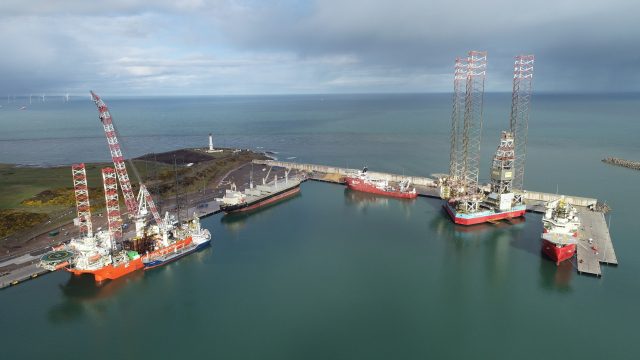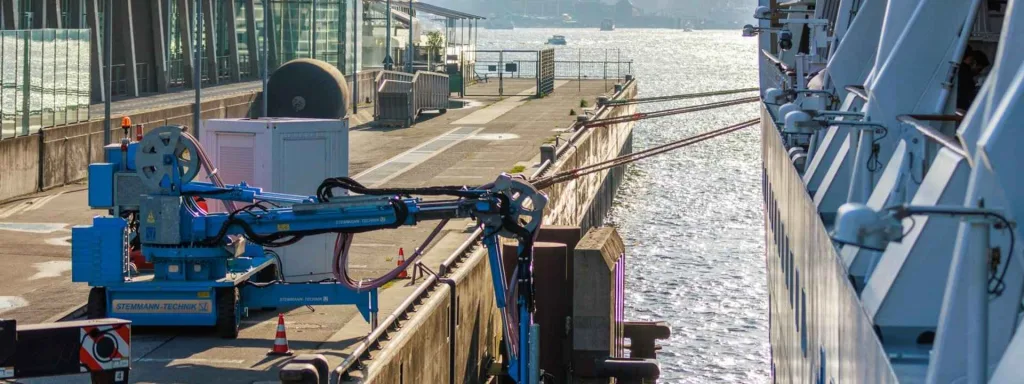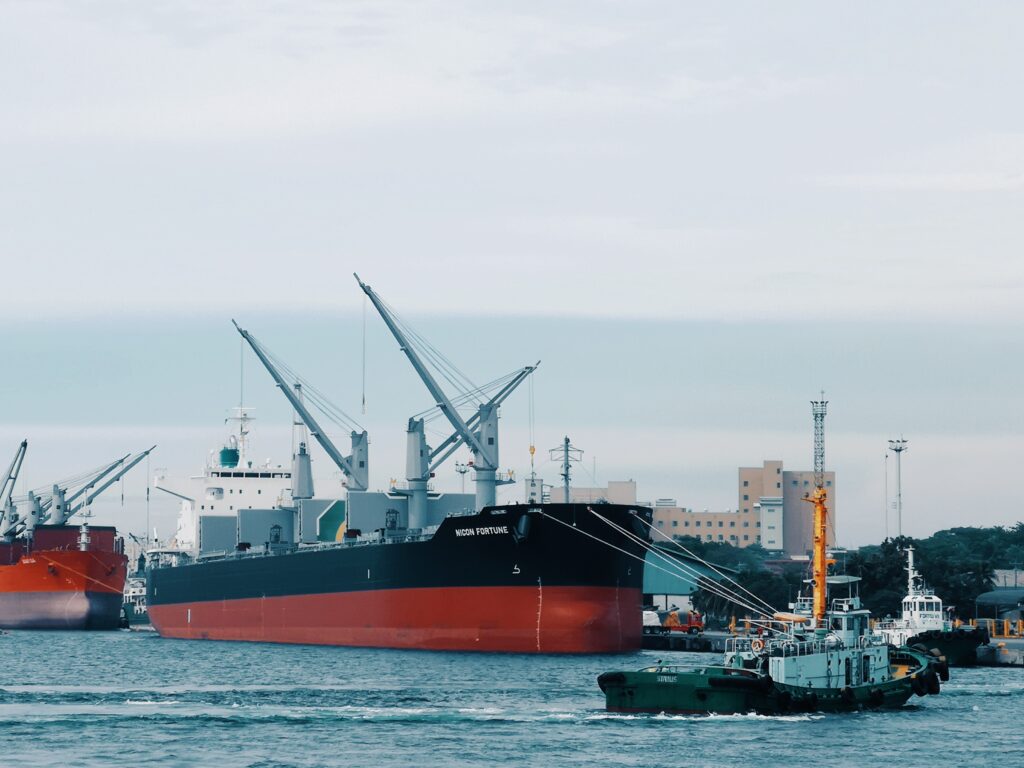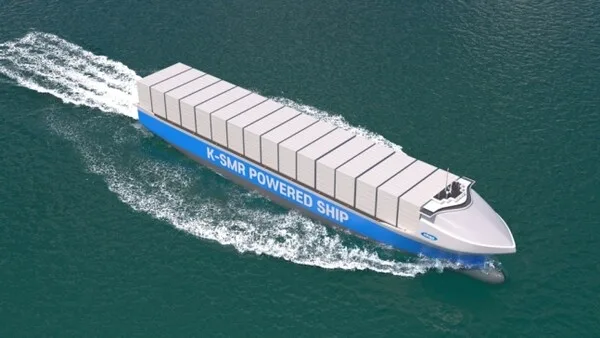19 April 2024
UK’s first net zero the Port of Aberdeen by investing £55 million

The port of Aberdeen to invest £55 million towards net zero emissions from vessels visiting the port, as well as the port’s own operations, by 2040.
Table of Contents
Concept
Port of Aberdeen on the 28th of April announced its commitment to invest £55 million over the next 10 years to become the UK’s first net zero port by 2040.
This means being an exemplar and targeting net zero emissions from vessels visiting the port (scope 3), as well as the port’s own operations (scope 1 and 2).
“Today we launched our net zero strategy with the aim of becoming the UK’s first net zero port by 2040. Strong partnerships and investment across the public and private sectors are essential to deliver this transformational change which will deliver significant benefits for the environment, local communities, and wider maritime sector.”
Bob Sanguinetti, Chief Executive, Port of Aberdeen
“I very much welcome Port of Aberdeen’s Net Zero strategy and congratulate them on making this important investment in their future.”
Mairi McAllan, Cabinet Secretary, Net Zero and Just Transition
Net Zero Strategy
This ambitious target is at the core of the Port of Aberdeen’s net zero strategy which focuses on collaborating with stakeholders across the private and public sectors to reduce emissions in the port, facilitate future low-carbon fuels, and support the energy transition.
To track its progress towards net zero, Port of Aberdeen will measure its emissions against a 2019 baseline, with 55,000 tonnes of CO2 equivalent emitted across scopes 1, 2, and 3. Notably, 97% of emissions were attributed to 9,500 vessel arrivals, recorded as scope 3.
Additionally, the port is measuring performance against a carbon intensity metric based on gross vessel tonnage, once the new Aberdeen South Harbour development has been fully operational for 12 months. You can read more about the port’s emissions and net zero strategy here.

CII Calculation: Carbon Intensity Indicator Guide
The CII calculation is one of the top hits the past month. We debunk its complexity by simplifying the procedures based on IMO guidelines.
Ship Nerd
The introduction of shore power at scale, starting with the first power at three berths in 2024, and facilitating low-carbon alternative fuels for client’s vessels are expected to generate significant reductions in emissions in the years to come. Achieving success in these areas will require a phased approach and strong partnerships with stakeholders, investors, and vessel owners.
So Far
The port has already taken action to reduce the environmental impact of its operations, starting with the roll-out of electric vehicles and the installation of LED lighting on the quaysides. A wide range of projects are now underway or planned, such as the trial of hydrotreated vegetable oil for port-owned vessels and equipment and exploring the feasibility of onsite energy generation for the port estate.

Shore power in nearly all ports during latest voyage
AIDA Cruises expands the use of shore power – AIDAsol was connected to shore-side plants in nearly all ports during a voyage for the first time.
Ship Nerd
Aberdeen has positioned itself as a leading port for collaboration on maritime decarbonization, securing funding and partnering on the first three rounds of the Department for Transport’s Clean Maritime Demonstration Competition, and working with industry partners on innovative green projects.
The £55 million net zero commitment comes after the port has already invested more than half a billion pounds in infrastructure in recent years. This includes the transformational South Harbour expansion which will unlock growth opportunities in the energy transition, including offshore wind, hydrogen, and decommissioning.
“Our vision is to become Scotland’s premier net zero port, offering world-class facilities and services, at the heart of the nation’s energy transition. We must be bold and ambitious to achieve this.
“Today we launched our net zero strategy with the aim of becoming the UK’s first net zero port by 2040. Strong partnerships and investment across the public and private sectors are essential to deliver this transformational change which will deliver significant benefits for the environment, local communities, and the wider maritime sector.
“Port of Aberdeen can play a pivotal role in the emergence of green economic growth in the wider maritime industry and support new, high-quality jobs.
Bob Sanguinetti, Chief Executive, Port of Aberdeen
“I very much welcome Port of Aberdeen’s Net Zero strategy and congratulate them on making this important investment in their future.
“The Scottish Government is committed to the decarbonisation of the transport sector in a sustainable way, and the maritime sector has a vital role to play.
“An efficient and effective offshore energy sector is crucial for a robust economy, and our work to decarbonize the maritime sector will take account of the critical importance of this sector in our supply infrastructure.
“I wish Port of Aberdeen every success as they aim for their ambitious target of reaching net zero by 2040.”
Mairi McAllan, Cabinet Secretary, Net Zero and Just Transition
“Aberdeen has a leading role to play in the UK maritime industry’s path to net zero. All the major energy operator and supply chain companies are on our doorstep, and we have a common goal – reducing emissions and achieving net zero.
“There is a long way to go in delivering our 2040 ambition but I’m confident we can deliver it through our net zero strategy.”
Naveed Qamar, Head of Safety, Health, Environment & Quality
Source: Port of Aberdeen
See Also
The coming year 2023 will be defining for shipping’s decarbonization journey and the industry can no longer go about its business as usual, according to shipowner group BIMCO.
Regulation is the “backbone” for shipping and other industries when it comes to decarbonization, and without it “developments would be slower and common guidelines and goals more blurred”.
To reach the target of net zero by 2050, shipping will face increasing commercial pressure to decarbonize, and the industry will need “all hands on deck”.

Business as usual for decarbonization is not an option after 2023
BIMCO advises that 2023 will be defining for shipping’s decarbonization journey and the industry can no longer go about its business as usual.


